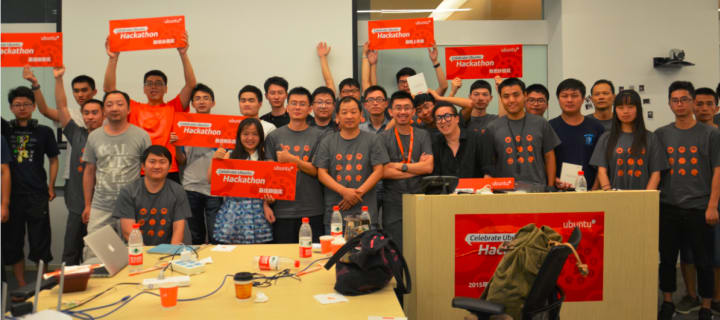April Wang
on 15 July 2015
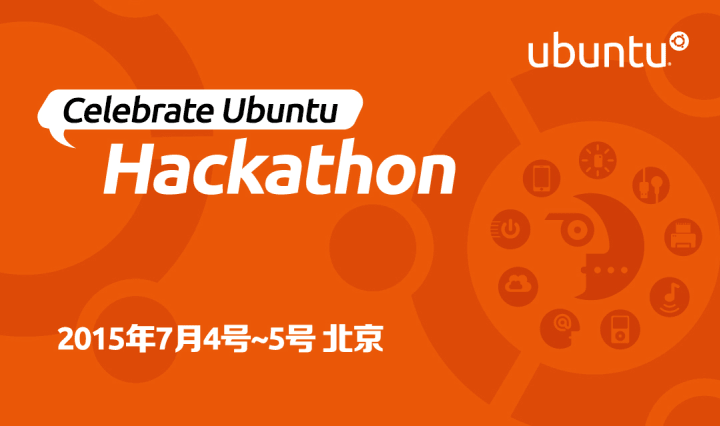
To celebrate the Developer Edition Ubuntu phone launch in China, Canonical organized a “celebrate Ubuntu” hackathon for the phone in Beijing. It was also hosted as part of the on-going China Mobile & Ubuntu Developer Innovation Contest, where all projects that were coded during the hackathon were able to be submitted into the contest afterwards. This 30+ hour hackathon was packed with creativity and excitement which was exhausting but amazingly fun.
With the help of media partners (TechCrunch CN, Tech Noda), local tech partners & communities (GitCafe, MS OpenTech, Ubuntu Kylin, Kaiyuanshe, SegmentFault, CSDN, OSCN, Linuxeden, QTCN, Linuxtoy.org), there were over 120 people that signed up online for the pre-hackathon, and 70+ people turned up onsite.
It was the first ever Ubuntu phone hackathon in China, with no agenda of a fixed topic or project requirement. All it needed was to function an Ubuntu phone at the end. The entire hackathon was driven by pure innovation and creativity.
The core of the hackathon was ideas and solutions that would provide a useful source of entertainment on the phone and 7 award categories recognised this:
- Avant-garde Award – for the most innovative ideas and projects
- Geek Award – for hardcore techy geeky projects
- Foolproof Award – for most user friendly projects
- TalkDaTalk Award – for best project demonstration
- Stunning Award – for best design projects
- Entertaining Award – for most fun and entertaining projects
- Special Content Award – for certain most needed content providing categories
Every team who stood up and provided a project demo received a final demo prize.
Final judging panels were made up by teams from Canonical and China Mobile device company. Each project was being reviewed for its creativity, usability, problem solving level, technical difficulty, design and the completion level. A 30 hour straight hackathon was an intense exercise and there were 14 teams in the end that proved their talent and effort through their live demo sessions. Four Meizu MX4 phones were given out for the top 4 teams, and all final teams received a Qt Core Tutorial book and numerous small gifts.
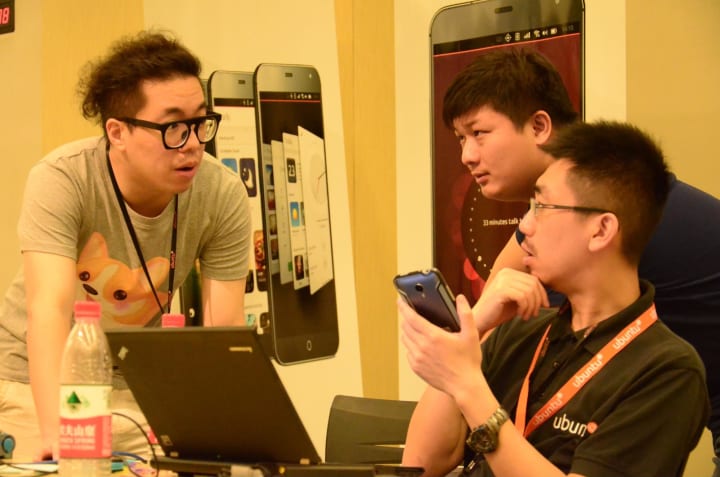
There was a wall with live weibo tweets and a hackathon countdown that was put together by @penk who provided a great live interactive platform for onsite participants and online fans and community members.
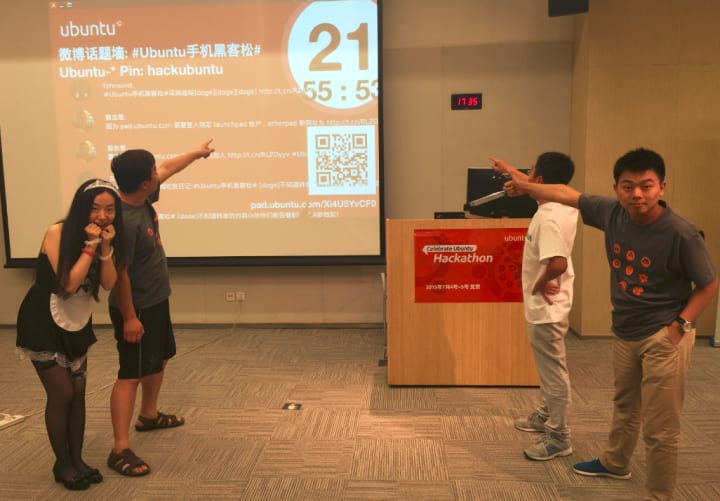
The 30+ hour hackathon was fueled with energy, determination plus Redbull & sweets!
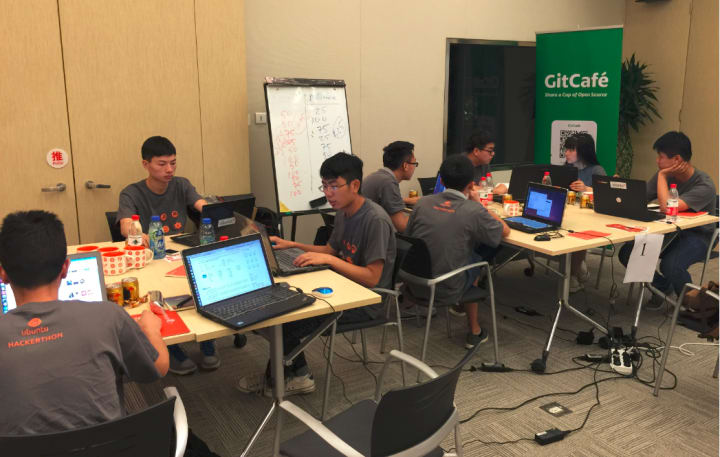
Some of the teams were new who spent the first day learning and second, coding. But this didn’t prohibit some from winning!
Then of course, all work and no play makes Jack a dull boy. Various gaming sessions and polaroid fun took place naturally to keep things alive and exciting!
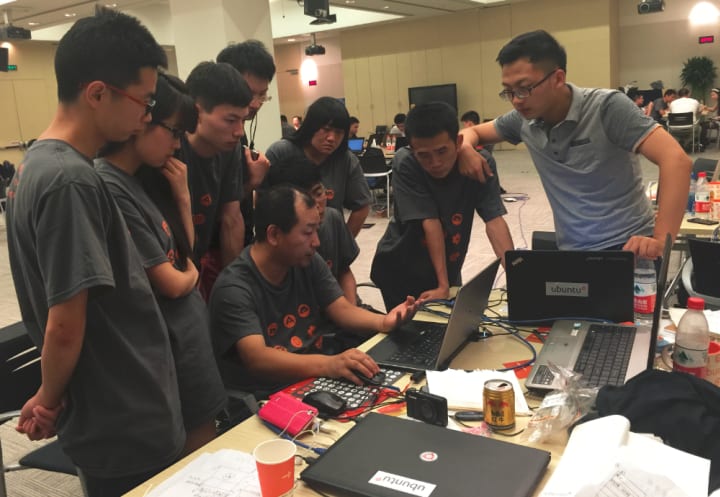
Below is a list of some finalists and their incredible work:
Douban FM
A great qml app with neat design and smooth user login experience, which also enables multi device sync up under your own account. Coded by the one man team @DawnDIYSoft, who is also the man behind the current youku scope in the Ubuntu store
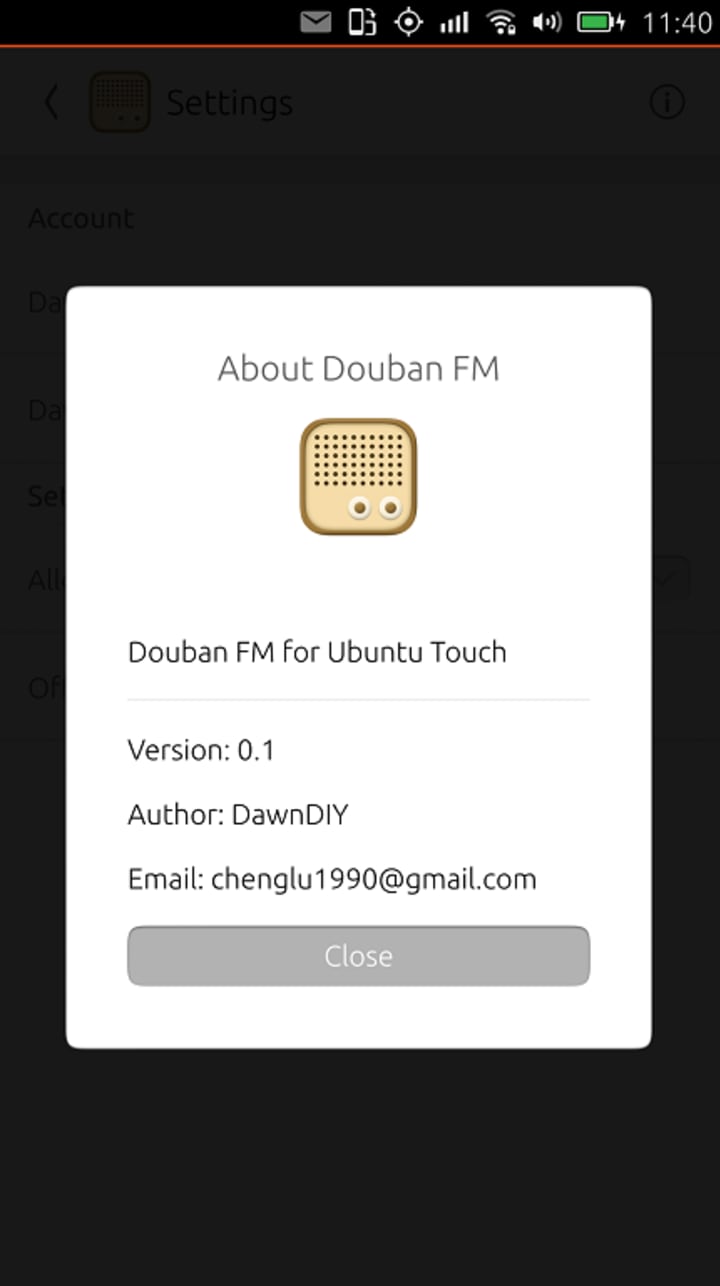 |
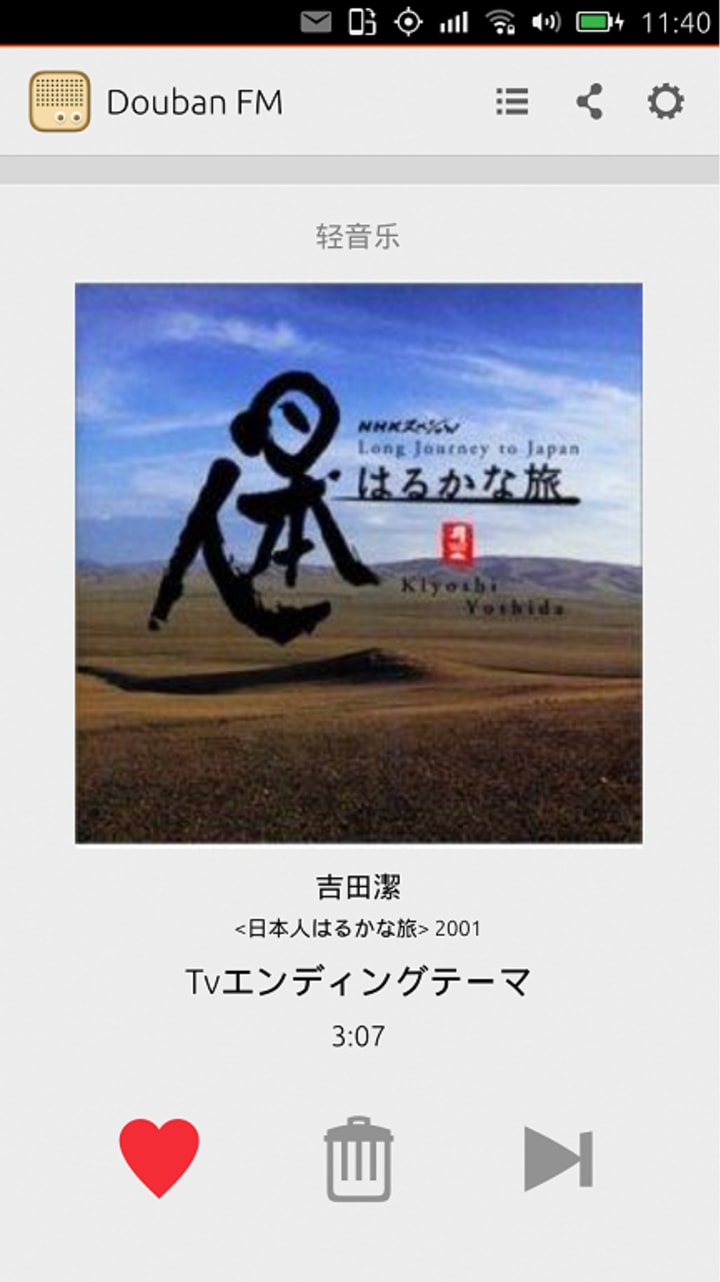 |
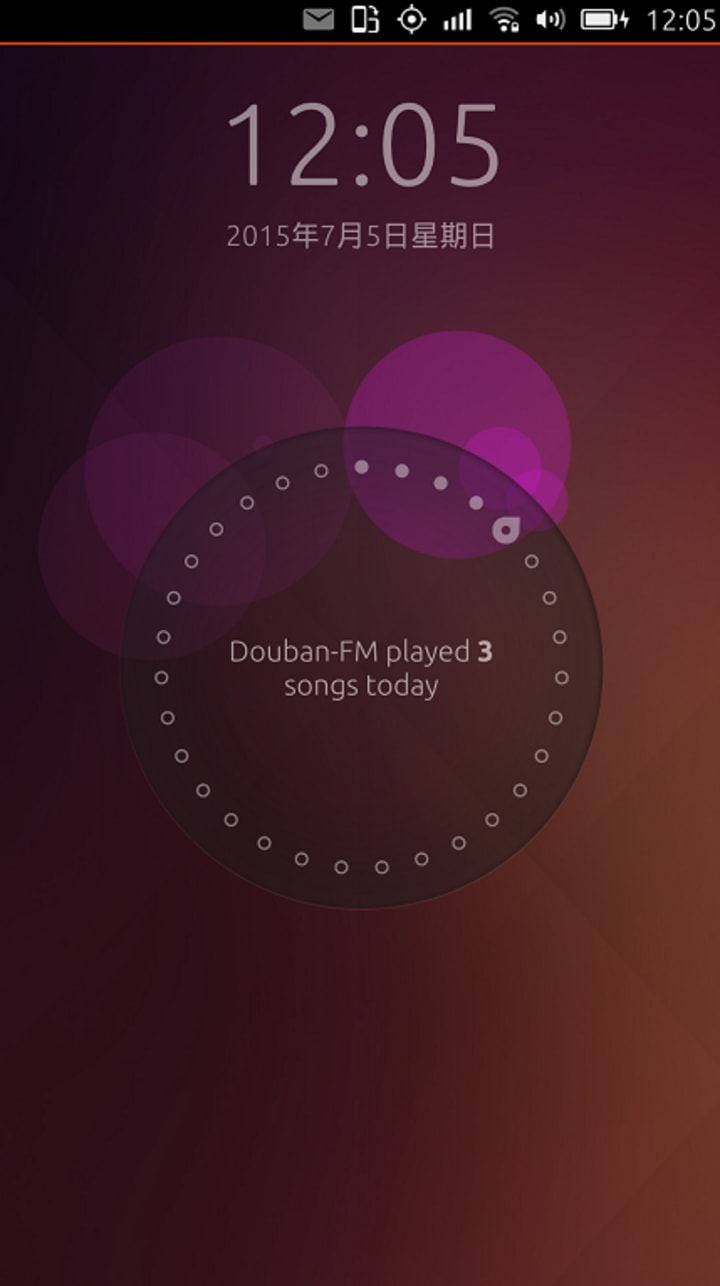 |
Loli
A brand new programming language, which was re-implemented with an interpreter built with JavaScript and ported to Ubuntu phone. Their project can be found here on github.
There was also the winner of the Geek Award, which was presented by Caobin, Project Manager from the China Mobile Device Company.
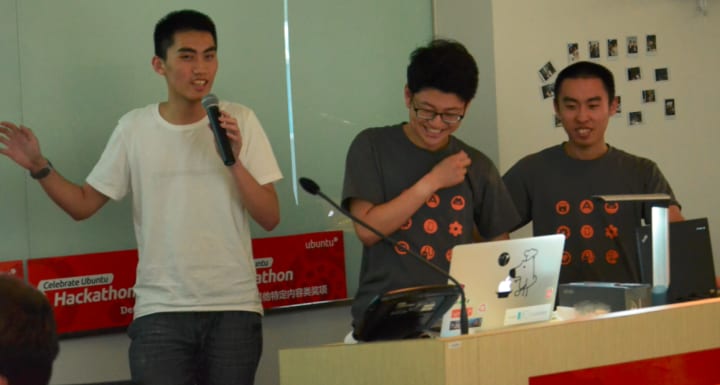
Memory Dictionary
Utilizing fragmented time slots in your life, such as when you are travelling on a metro train, to memorizing new words and phrases (English language learning app). The app was already built for MacOS, iOS and Android, and is very popular on those platforms. During the hackathon, the team ported it to Ubuntu phone based on cordova.
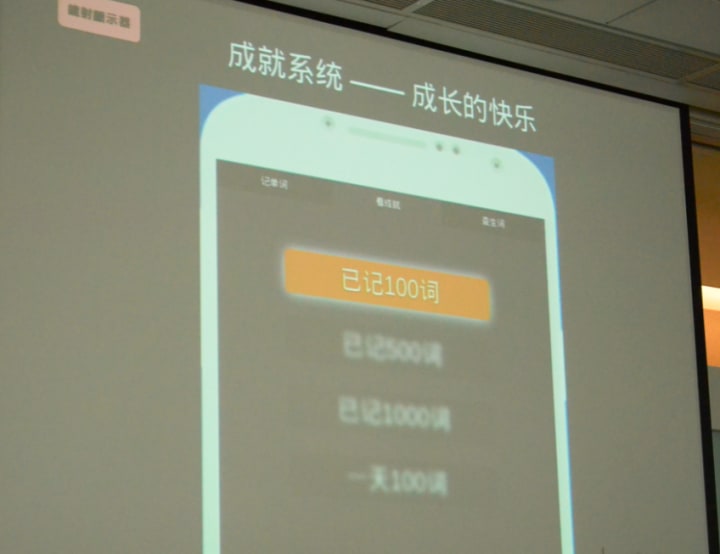
Couple Like
An html5 app that compares two person’s pictures to provide a conclusion on what type of couple the two will make. It’s light hearted, fun and packed with love, coded by couple team who were on the dance floor not long before the demo.
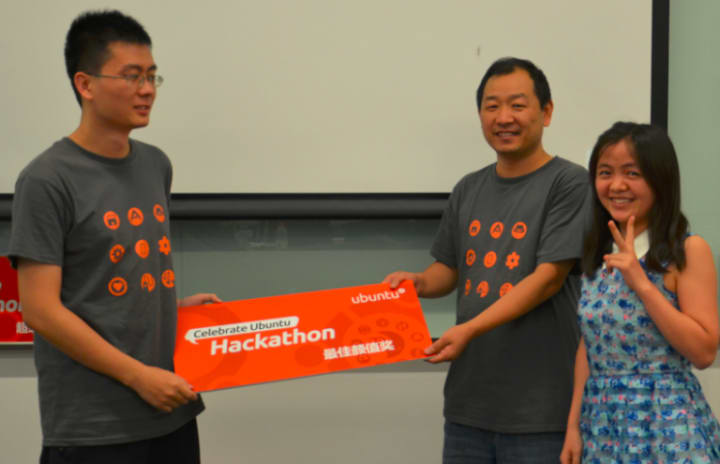
Dou Dizhu (poker game)
A single poker game with it’s own memory management system and AI. It was implemented in qt widget, so still need some work to port it to Ubuntu phone. But through the desktop demo, it’s already looking entertaining.
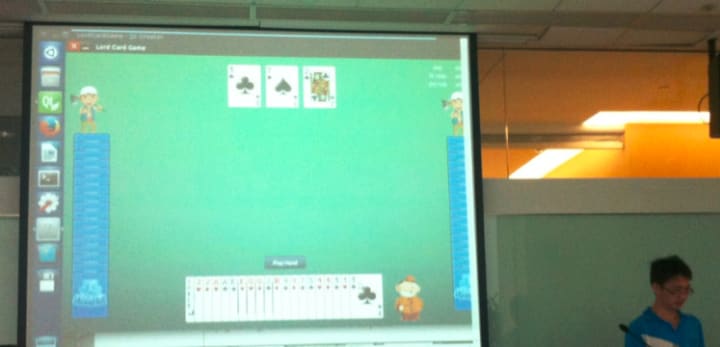
Utu / uPhoto
It’s an app implemented with C++ for image/photo processing but exciting enough for us to know that soon we can beautify our snapshots on our Ubuntu phone.
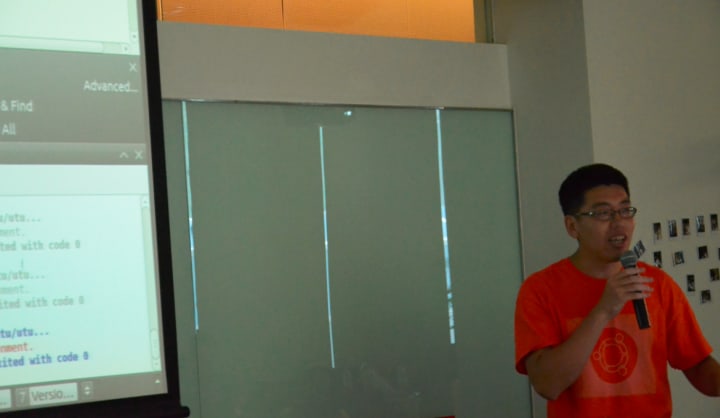
uChat/(Ubuntu Chat)
A dating messaging service application dedicated for anyone who finds it difficult to make the first move or the right move when it comes to meeting someone. It involves server side and client side technology, despite their initial plan of using html5 based on webapp or cordova, the prototype in the end was built with qml by a team of university students.
Congratulations to all that participated and can’t wait to start using the Scopes!
